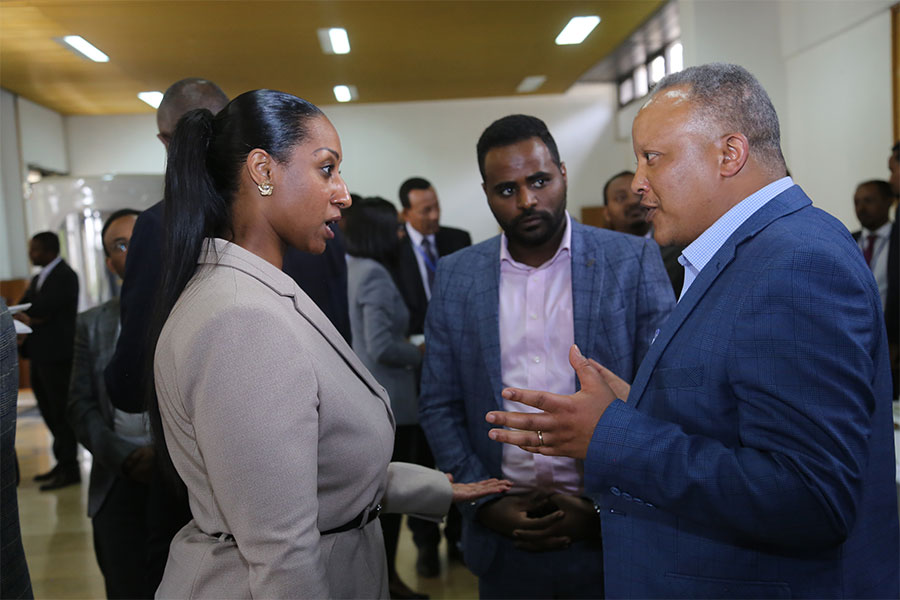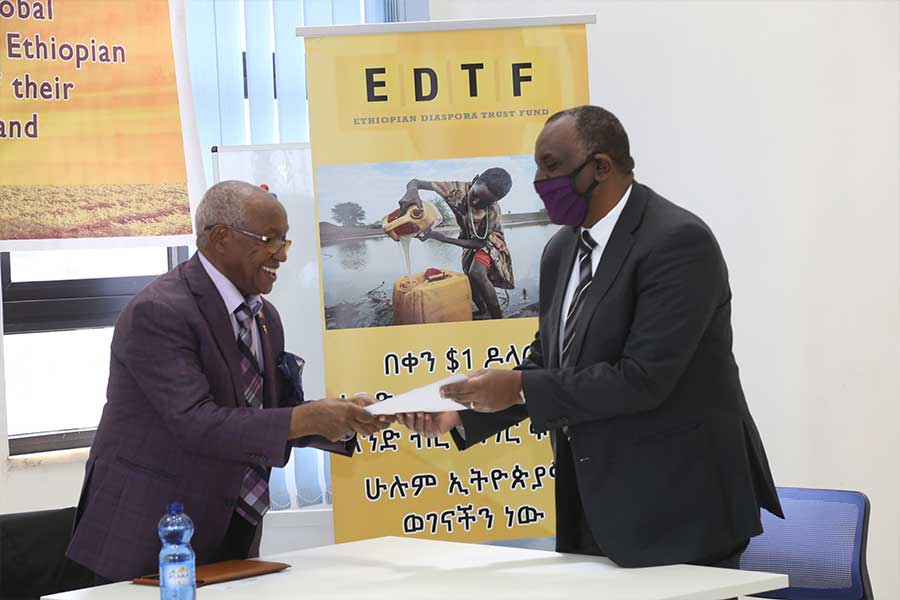
Radar | Jul 13,2020
Aug 14 , 2021
By SELAM GUTU ( FORTUNE STAFF WRITER
)
A new directive has eased the requirements for the registration of accountants and auditors, lowering the previously required eight years of experience to just three.
Drafted by the Accounting & Auditing Board of Ethiopia (AABE), the decision aims at increasing the number of professionals in the sector, according to Abebe Shiferaw, communications director for the Board.
For a country with over two million businesses, half a million of which were registered in the last three years, there are only 150 auditors and 960 accountants, a state of affairs in the sector the Board wants to buck with the implementation of the directive. Officials of the Board see the introduction of the new directive as a significant development to fully implement the International Financial Reporting Standards (IFRS), a process that has been obstructed largely by the shortage of professionals and a surge in conversion costs.
Establishing the criteria for the registration of accounting professionals and auditors, the directive has made the Board the sole federal agency in charge of issuing certifications and permit to accountants, auditors, and accounting or auditing firms, as well as the registration of all financial reporting entities. It marks the first time in over six decades that financial reporting moves from the standards and practices set by the Office of the Federal Auditor General, established during the Imperial era.
Under the chairmanship of Eyob Tekalign (PhD), state minister for Finance, the Board has already approved the directive, which will come into force once codified and registered by the Attorney General.
"We want to make sure standards are met," said Abebe. "We also want to incentivise professionals to involve in the auditing business, easing restrictions."
Not everyone has welcomed the lowering of requirements under the new directive.
"The quality of education in our public or private higher education institutions is lacking," said Fetsum Getahun, an accounting professional and a founder of Fetsum Getahun Authorised Accounting Firm. "The students haven't gained anything when they come out of these institutions. I fear the lack of knowledge and experience will be reflected in their reporting and the services they provide."
The directive also permits instructors at higher education institutions with three years of teaching experience to register.
Lowering the requirements will cause issues with ensuring accuracy and compliance with existing laws and regulations, according to Abraham Zewdi, head of an accounting firm.
"Considering the amount of time it takes to acquire clients, they may add the years and the experience needed," said Abraham.
The Board sees its mandatory requirement of having a practising certificate from an accredited professional association as a solution to screen professionals who do not meet reporting standards. Practising certificates are provided by accredited professional associations such as the Association of Chartered Certified Accountants(ACCA), a UK-headquartered accounting body offering Chartered Certified Accountant qualification through its branches worldwide, including in Addis Abeba.
The provision of practising certificates differs from one institution to another. Ordinarily, professionals take a standard examination given by the association and become a member after passing the exam. A certificate is provided upon becoming a full member and fulfilling the experience requirements set by the association.
With the draft directive, accountants are also required to be members of an accounting board certified by the AABE.
These changes come with another directive the Board has drafted, hoping to standardise bookkeeping practices for reporting entities, accounting professionals and auditors, and defining registration requirements. The second directive – the Reporting Entities Registration, Identification Criteria and Management Guide – wants to inform public interest entities and small and medium enterprises about the financial reporting standards to prepare financial statements.
The Board took on the challenge of compelling companies to convert their financial reporting requirement to the IFRS, following a proclamation parliament passed in 2015.
About 18,000 companies, both public and private, are expected to comply with one of the three IFRS categories set forth by the Board, which originally aimed to complete the implementation of IFRS by 2020. However, it has pushed the deadline to 2024.
PUBLISHED ON
Aug 14,2021 [ VOL
22 , NO
1111]

Radar | Jul 13,2020

Fortune News | Nov 27,2018

Radar | Dec 05,2020

Radar | Jul 30,2022

Fortune News | Jun 19,2021

Radar | Jun 01,2019

Fortune News | Apr 13,2025

Fortune News | Mar 07,2020

Fortune News | May 09,2020

Viewpoints | Aug 07,2021

Dec 22 , 2024 . By TIZITA SHEWAFERAW
Charged with transforming colossal state-owned enterprises into modern and competitiv...

Aug 18 , 2024 . By AKSAH ITALO
Although predictable Yonas Zerihun's job in the ride-hailing service is not immune to...

Jul 28 , 2024 . By TIZITA SHEWAFERAW
Unhabitual, perhaps too many, Samuel Gebreyohannes, 38, used to occasionally enjoy a couple of beers at breakfast. However, he recently swit...

Jul 13 , 2024 . By AKSAH ITALO
Investors who rely on tractors, trucks, and field vehicles for commuting, transporting commodities, and f...

Jul 5 , 2025
Six years ago, Ethiopia was the darling of international liberal commentators. A year...

Jun 28 , 2025
Meseret Damtie, the assertive auditor general, has never been shy about naming names...

Jun 21 , 2025
A well-worn adage says, “Budget is not destiny, but it is direction.” Examining t...

Jun 14 , 2025
Yet again, the Horn of Africa is bracing for trouble. A region already frayed by wars...